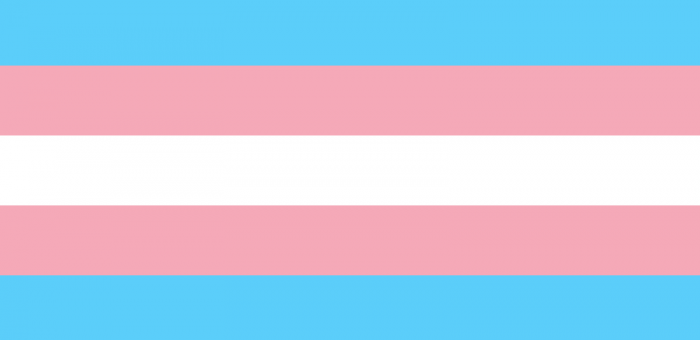Legislation
In Support of BC NDP Gender Identity & Expression Human Rights Bill
In question period today I had originally planned to ask government a question concerning the preservation of old growth forests on Vancouver Island. But since the relevant Minister was not available to respond in Question Period today, I had to be nimble and switch direction.
Earlier in the day, the BC Green Party had issued a release (reproduced below) encouraging B.C. Premier Christy Clark to embrace the Gender Identity and Expression Human Rights bill introduced to the Legislature yesterday by BC NDP MLA Spencer Chandra-Herbert. I took the opportunity to see if I could get the Premier to commit to consider bringing in her own bill. Such a bill would modify the Human Rights Code to add explicit language identifying discrimination based on gender identity or expression as unacceptable in British Columbia.
Real leadership acts on good ideas regardless of where they come from. Real leadership has the well being of British Columbians at the heart of every decision. I am convinced that the Premier can be persuaded to make this a priority.
But as I note below, I understand that at times it’s very difficult to actually want to bring forward good legislation and rise above the partisanship when personal insults, vitriol and allegations are hurled back and forth.
The speaker ruled that I referred too extensively to the Private Member’s bill and so called for the next question without compelling an answer from the Premier. While obviously disappointed, I am still hopeful that the Premier will see the wisdom and merit in Spencer’s bill and rise above the catcalling that has been hurled her way during Question Period. After all, it’s 2016.
Question
A. Weaver: Yesterday was a very fine day in British Columbia, as the government introduced the Sexual Violence and Misconduct Policy act. I was very pleased to see the government introduce this, and we’ll be debating it further.
Yesterday was also an important day, because another bill was brought to the Legislature, a bill entitled Gender Identity and Expression Human Rights Recognition Act. In that bill, ten words and a comma were proposed, ten words and comma which will have enormous implications to the acceptance — telling British Columbians that we are an accepting society. It’s essentially putting forward changes to the Human Rights Act.
Madame Speaker: Member.
A. Weaver: Yes?
Madame Speaker: The bill is before the House, currently.
A. Weaver: Correct.
My question to that, with respect, hon. Speaker, is as follows. Will the Premier consider…?
Madame Speaker: Member.
A. Weaver: Hon. Speaker, my question, then, is this: will the Premier introduce legislation along the lines of allowing changes to the human rights code to identify gender identity and expression as reasons not to have discrimination in British Columbia? This will send a signal to British Columbia, an important signal to British Columbia that we are an accepting society.
Madame Speaker: The bill is before the House. Next question; new question.
Additional Question
A. Weaver: I understand, hon. Speaker, in this House that, at times, personal allegations are hurled back and forth, and at times it’s very difficult to actually want to bring forward good legislation and rise above the partisanship. However, when good ideas are brought to this House, surely we can all rise above this partisanship.
Yesterday we had a good idea brought to this House. The good idea that was brought to this House was to say to the people of British Columbia that we will not discriminate against gender identity and gender expression.
My question to the government is: will the government consider introducing their own legislation to actually add words with respect to gender expression and gender identity in the human rights code to ensure that they are not discriminated against?
Madame Speaker: Member, the bill has been received, and first reading has been sent down for second reading.
Next question.
Media Release
VICTORIA, B.C. – Andrew Weaver, Leader of the B.C. Green Party and MLA for Oak Bay–Gordon Head, today encouraged B.C. Premier Christy Clark to embrace the Gender Identity and Expression Human Rights bill introduced to the Legislature yesterday by B.C. NDP MLA Spencer Chandra-Herbert.
“Yesterday was a highlight of my time in political office because I was able to set aside political differences with the government and put forward good public policy in the form of the Sexual Violence and Misconduct Policy Act,” Weaver said. “Not every issue is partisan. In fact, good public policy should unite the Legislature. The issue of sexualized violence on B.C. campuses is one example. Mr. Chandra-Herbert’s bill is another.”
“I am sincerely hoping that Premier Clark will throw her government’s support behind this bill, as she has done with the B.C. Green Party bill to address sexualized violence at B.C. campuses. The B.C. Green Party has publicly supported Mr. Chandra-Herbert’s bill each time he has tabled it. As Premier Clark demonstrated in the case of the Sexual Violence and Misconduct Policy Act, real leadership acts on good ideas regardless of where they come from. Real leadership has the well being of British Columbians at the heart of every decision.”
– 30 –
Media contact
Mat Wright – Press Secretary
Office of MLA Andrew Weaver
1 250-216-3382
mat.wright@bcgreens.ca
Video of Questions
Bill 23: Sexual Violence and Misconduct Policy Act
Today in the Legislature the government introduced Bill 23: Sexual Violence and Misconduct Policy Act, 2016. The introduction of this act fulfills the promise by the Premier to introduce legislation along the lines of my private members Bill M205: Post-Secondary Sexual Violence Policies Act.
I am incredibly fortunate to work with exceptional people who helped with its development. I am indebted to Claire Hume, Stefan Jonsson, Evan Pivnick, Aldous Sperl and Mat Wright for their efforts in this regard. In addition, I am very grateful to Brontë Renwick-Shields, Kenya Rogers, Jean Strong and the Victoria Sexual Assault Centre, for their willingness to educate me on the importance of this issue. Finally, and collectively, we all owe a debt of gratitude to the incredibly courageous survivors of sexualized violence who had the courage to speak out.
The government’s willingness to work collaboratively and urgently on this bill speaks volumes to its importance. I am really proud of what we have collectively accomplished. Thank you.
Below are the text and video of the Bill’s introduction along with a copy of our accompanying media release.
Video of Introduction
Text of Introduction
Hon. A. Wilkinson: I move that the bill be introduced and read a first time today.
Motion approved.
Hon. A. Wilkinson: I am pleased to introduce this bill, Bill 23, the Sexual Violence and Misconduct Policy Act.
Currently, our public post-secondary institutions are not required to have a policy to address sexual violence and sexual misconduct on their campuses. Sexual misconduct is widely defined in the bill to include a range of sexual acts that cannot be tolerated or condoned or ignored.
Unfortunately, a number of these incidents do occur at institutions across the country on a regular basis, and our public post-secondary institutions have reported some of these in recent months.
Premier Christy Clark has stated that there’s more that we can do and more that we should do, and this bill addresses that. This proposed legislation builds upon the private member’s Bill M205, introduced earlier in this, and the Ontario legislation on this topic.
This legislation will require all institutions in our public post-secondary sector in British Columbia to establish and implement a sexual misconduct policy that addresses a wide range of sexual assault, sexual harassment, misconduct and other preventable episodes which require a response.
These policies will also be required to set up procedures on how an institution will address these issues and to require reporting of these incidents on a regular basis.
The proposed legislation will come into force one year from royal assent.Institutions will have that year to establish and implement the sexual misconduct policy.
The proposed legislation respects the autonomy and diversity of our post-secondary institutions, including our autonomous universities. The proposed legislation provides significant latitude for institutions to set policies that meet the needs of students, including education and prevention while working to create a safer environment for students to come forward to report sexual misconduct of all types.
Institutions will be required to consult with students on the development of their policy to address sexual misconduct and to conduct surveys in the effectiveness of these policies at the direction of the minister.
Once established, these sexual misconduct policies will need to be reviewed — with student consultation — at least once every three years or more frequently as directed. The legislation will be supported by a framework that has been developed with the institutions and with the anti-violence sector in our communities to provide guidance for a comprehensive approach to dealing with sexual violence and sexual misconduct.
I move that the bill be placed on the orders of the day for second reading at the next sitting of the House after today.
Bill 23, Sexual Violence and Misconduct Policy Act, introduced, read a first time and ordered to be placed on orders of the day for second reading at the next sitting of the House after today.
Media Release
Media Statement: April 27, 2016
Weaver Responds to Government’s Post-Secondary Sexual Misconduct Legislation
For immediate release
Victoria B.C. – “The government’s willingness to work collaboratively and urgently on this bill speaks volumes to its importance. I am really proud of what we have collectively accomplished,” said Andrew Weaver, Leader of the B.C. Green Party and MLA for Oak Bay-Gordon Head, following the tabling of Bill 23, The Sexual Violence and Misconduct Policies Act, 2016.
Andrew Weaver tabled the Post-Secondary Sexual Violence Policies Act, 2016 on March 8th with the aim of creating a legal responsibility for every University and College in B.C. to develop and maintain policies that would provide education for students, support for survivors and would work to prevent the occurrences of sexual assault on campuses. On March 16th, during question period, the Premier agreed to pass his bill or develop comparable legislation.
Government adoption of legislation proposed by other parties is very rare, if not
unprecedented. Since 2001, Opposition Members have introduced 202 Private Members’ Bills, but none have passed.
“Our definition of sexual violence has been expanded to include the non-consenting distribution of sexually explicit photos and videos, as well as the threat of sexual misconduct, which are great additions.”
This bill creates a framework within which post-secondary institutions, with input from their student bodies, will develop and maintain sexual assault and data collection policies.
“This legislation is a critical first step in starting a real conversation about how we can best ensure the safety of everyone who attends a post-secondary school in British Columbia.” said Weaver. “Going forward, the involvement of students and university administration will be absolutely essential and I plan to be closely involved with the process..”
Weaver will be available for comment in the Rose Garden at the Legislature today immediately following Question Period, around 2:30pm.
– 30 –
Media Contact
Mat Wright – Press Secretary Andrew Weaver MLA
1 250 216 3382
mat.wright@leg.bc.ca
Andrew Weaver and the UVic Student Society will be co-hosting a Town Hall to discuss sexualized violence on BC Campuses – and what this legislation will mean for schools and students – next week on Wednesday, May 4th. 7 to 9pm, Vertigo Room, University of Victoria Student Union Building, 3800 Finnerty Road
Bill 19 — the ongoing generational LNG sellout continues
Today in the committee stage I engaged in a series of questions and answers with the Minister of Environment during committee stage of Bill 19 — Greenhouse Gas Industrial Reporting and Control Amendment Act, 2016. As I noted earlier at second reading, Bill 19 represents the latest in the ongoing litany of BC Liberal giveaways in a desperate attempt to land a single LNG final investment decision despite that fact that there is a global glut of natural gas on the market.
Below are the text and video of my exchange with the Minister of Environment.
Text of Debate
A. Weaver: I’m wondering, with respect to the implementation of this, what timeline the government is thinking that LNG facilities will start to develop and whether or not they expect any LNG facility to actually trigger a compliance period before 2020.
Hon. M. Polak: In terms of implementation, we anticipate having regulations completed and drafted late 2016, early 2017. With respect to the member’s other question around the likelihood of operations being in place, I’ll leave that for the Minister of Natural Gas Development. We’ll retain our role as the regulator.
A. Weaver: My question back to the minister is this. Legislation will be ready and regulations will be ready — 2016, 2017, say. Does the minister expect there to be an LNG facility taking up these regulations before 2020? It’s a very clear question.
These regulations would not be put in place if there was not a very specific reason to put them in place. The specific question is: why are we doing this now? Who is coming, and what is the timeline by which government thinks an LNG facility will make a final investment decision such that these regulations will be triggered?
Hon. M. Polak: As the regulator, I’m not involved in discussions with respect to final investment decisions that industry players may make.
We have seen, in terms of the realm of approvals…. We know that Tilbury is certainly on its way. We know that Woodfibre has received both a certificate from ourselves and also from the federal government. We don’t know what the federal government position is going to be with respect to PNW.
Again, we operate from the regulatory side. In terms of what decision-making is occurring around boardroom tables, that’s not in my purview.
A. Weaver: The answer was, clearly, that the senior minister within government doesn’t really know. That leads me to the next question then. If the government is putting in place regulations along this line and is expecting — perhaps maybe, but we don’t really know — some proponents to take it up, my question is this. Will the minister be introducing legislation to repeal the Greenhouse Gas Reduction Targets Act this session? If anybody takes this up, they will need to do that.
Hon. M. Polak: I apologize. I was listening, but I don’t quite understand what the member is asking about repealing.
A. Weaver: To clarify, if a proponent were to take up this new legislation and the compliance period were to be enacted or a transitional compliance period were to be entered into, then we know that the 2020 greenhouse gas reduction target that is a matter of law in British Columbia — that we are to reduce emissions by 33 percent — will not be possible.
In introducing this legislation, it’s critical that the government introduce parallel legislation to repeal the Greenhouse Gas Reduction Targets Act, which is currently a matter of law. The question to the minister is this: when will she be introducing legislation to repeal the Greenhouse Gas Reduction Targets Act? You can’t have your cake and eat it to. You introduce this. You repeal that. When will that be occurring?
Hon. M. Polak: There’s no intention at this stage to introduce such legislation, and here’s why. Firstly, the member knows from the climate leadership team report that we’re well aware that we are not on track to meet our 2020 targets. That’s no surprise. It’s something that myself and the Premier have spoken about many times in public.
But we’ve also talked about the importance of considerations around the current climate leadership team’s recommendations. Those recommendations are modelled on the premise of having two operating LNG facilities newly operating in British Columbia. They present a very challenging set of recommendations, but those recommendations are being wrestled with.
To the question of if the answer to not meeting the 2020 target is to repeal the legislation, the best example I can provide is what happens when there are challenges faced in the world of budgeting. We have a law in British Columbia that requires us to balance the budget. When we don’t manage to do that, and occasionally, that occurs — it certainly occurred when we had the financial downturn most recently — we don’t repeal the balanced budget legislation. We have to work to get back on track.
How will we address the existing 2020 target in law? I’m not aware of any decision with respect to that having been reached. It’s something that we will have to determine as we proceed with our new climate action plan.
A. Weaver: It’s not only the 2020 target; it’s the 2050 target. And with respect, hon. Chair, through you to the minister, you cannot meet the 80 percent reduction by 2050 with two large LNG plants. Unless everybody in the province of British Columbia simply stops driving cars, it is factually incorrect to argue that you can, and the Climate Action Team did not say that you could.
The reality is that these targets need to be repealed. The reality is that this government is misleading British Columbians, inadvertently, maybe — I wonder — and this government needs to be honest. It needs to be honest with them that this legislation, continuing the generational sellout, is essentially throwing aside our plans to reduce greenhouse gases by yet another loophole, the transition period.
If any proponent were to take up this transition period and have a free rein, essentially, on greenhouse gas emissions, the 2020 target is out of the window. The government has yet to say what they are going to do with greenhouse gases to meet some other 2020 target. The government has no plan on greenhouse gas reductions. The government is full of hot air about the climate file, and the government is an embarrassment internationally in terms of what it has not done anymore on the climate action file.
My question to the minister, one last time, is: when does the government believe that proponents of LNG will actually make final investment decisions, and is the government actually stalling any climate leadership because it’s waiting to see whether an LNG facility will come or not?
Hon. M. Polak: Well — a lot to cover there. Firstly, there is no free ride. There is no free ride. They will still have to monitor and report and be responsible and pay for their emissions over that time period. The first reporting period is simply allowed to extend for a maximum of six months more. There you go. That’s all the magic in it. They don’t get a free ride.
With respect to the Climate Leadership Team’s recommendations, they’re there for all to see, and they certainly would put us on a path to meeting our 2050 targets. And they do include the operation of LNG facilities.
We also had, in terms of our climate file, some rather good news just delivered to us, and it was a little unexpected because we know that our trajectory recently has been more challenging in emissions. But on April 14, I believe, the National Inventory Report came out and actually showed that we have seen a slight decline in our emissions. So that’s a positive. But we still have an awful lot of work to do.
The fact is, though, that this change, the new entrant period, does not change the obligations that these companies have to comply with their requirements. I know that the member certainly is not supportive of the industry, and that’s fair enough, but it’s wrong to say that what this does is give companies a free ride. It does not.
A. Weaver: I’ve never said I’m not supportive of the industry. What I have said is I’m not supportive of hype and giving away a generational resource to foreign international companies at essentially no benefit to British Columbians.
My question on this topic, then, directly to the minister, is: which reporting are you talking about for fugitive emissions? The federal number or the B.C. number? They don’t match. Are you talking about the national inventory fugitive emissions or the B.C. fugitive emissions? Nobody quite knows, when the B.C. government talks about emissions reductions, which one number they are using, because the numbers don’t match up.
Hon. M. Polak: In this case, I’m not talking about simply the emissions from fugitive emissions. I’m talking about the National Inventory Report with respect to British Columbia’s overall emissions.
A. Weaver: But that number depends on an overall reduction based on a number. One of those numbers is fugitive emissions, and the fugitive emission number federally is different from the number used provincially. So my question is: which number is the right number, and which number does the province use when it’s actually doing its calculations in terms of greenhouse gas reductions?
Hon. M. Polak: The member will know that this has been a long-standing problem, not just for British Columbia but other provinces as well. There is a different set of numbers that is utilized by the federal government, by various provinces.
In fact, it is one of the important pieces of work that is being undertaken currently within the federal process, our officials meeting with federal officials — it’s happening between other provinces and the federal government as well — to arrive at a standard means by which we can measure and report emissions across all sectors.
In this case, what I was pointing to is completely the federal numbers and their report that shows we have seen a slight decrease recently in our emissions.
A. Weaver: The minister just admitted that the minister does not know which overall number should be used in discussing emissions reductions. In essence, what we’re hearing is that the ministry is essentially saying: “We don’t know what we’re reducing because we don’t know what number we should use.”
My question to the minister is: when are we going to have the answer to this?
Hon. M. Polak: The difference between the two is based on the fact that the federal government has a different threshold for reporting, for one. Theirs is 50,000; ours is 10,000. Therefore, we capture more of the data, which is likely the reason why it appears we have more accurate information with respect to our emissions from these facilities than the federal government would have. Their data set doesn’t capture those below 50,000, so they then must project what those might be.
Now, it’s a recognized problem and has been for some years. We’re hopeful that through the current process in which we are involved with the federal government that that will be resolved. I know we have made significant progress discussing this at the Canadian Council of Ministers of the Environment.
A. Weaver: Just to summarize then, the minister has talked about the climate leadership team’s recommendations, and the climate leadership team’s recommendations, apparently — not what I read — will allow for two large LNG facilities to come in place. I guess we’d all have to have negative emissions — everyone else.
Let’s come to that, because the climate leadership team recommended a $10 per year increase in the carbon tax every single year. My question then is: if the minister is going to evoke the climate team’s response, is the minister here today willing to say that she accepts the $10 per tonne increase in the price of carbon, and does she not think that this will immediately preclude any LNG industry from existing in B.C.?
Can she look British Columbians in the face and say that we support a $10 per tonne increase in emissions pricing and we honestly think that an LNG facility will develop here in B.C.? Does the minister honestly think she can have her cake and eat it too?
Hon. M. Polak: No surprise to the member, I’ll save pronouncements on taxation activities related to the carbon tax for the time when we’re debating that bill in committee.
A. Weaver: Just to clear up the record for British Columbians who are riveted to their TV screens today, the answer is simple. You cannot increase carbon tax $10 per tonne per year and expect there to be an LNG industry. The reality is you can’t, unless you exclude all LNG emissions.
The reality is we are witnessing yet another emperor with no clothes. It’s about time, frankly, that British Columbians be levelled with honestly — that we cannot have climate leadership and an LNG industry, and until such time as this minister levels correctly, honestly, with British Columbians, they will continue and remain to have zero credibility on the climate file.
Video of Debate
Bill M221 — Rideshare Enabling Act, 2016
Today in the legislature I tabled a private member’s bill: Bill M221 — Rideshare Enabling Act, 2016. This bill is intended to start a public dialogue about the rules we need to make ridesharing a reality for British Columbia.
Provinces and cities across Canada and throughout North America have been using ridesharing technology for years. But BC struggles to articulate a vision for promoting innovation in the tech sector. In fact, 22 CEOs and founders from Vancouver’s tech industry recently wrote an open letter to the BC government stating “we are compelled to express our concern regarding the provincial government’s long-standing inaction on ridesharing regulation in B.C. and how we now find ourselves falling behind the rest of the world.”
British Columbians have only heard mixed things from the government on the topic of ridesharing. When the cabinet minister responsible for developing regulations for ridesharing services calls these emerging companies ‘pushy’, it doesn’t set the right tone.”
The BC Green Party will be launching a public survey on their website today that will give British Columbians a chance to take part in a conversation about ridesharing and the evolving creative economy. Results will be published later this spring.
In my view, it’s time the conversation was more transparent and engaged British Columbians about what they want to see happen with these innovative new services. There are numerous voices calling for this government to truly support the emerging tech sector. For some reason, they are having a hard time being heard by this government.
Below are the video and text of the introduction of my bill together with our accompanying media release.
Text of Bill Introduction
A. Weaver: I move that a bill intituled Rideshare Enabling Act, 2016, of which notice has been given in my name, be introduced and read a first time now.
Motion approved.
A. Weaver: I’m pleased to be introducing a bill intituled the Ride-Share Enabling Act, 2016. Ride-sharing is a key component of the new and emerging creative economy in British Columbia. While numerous jurisdictions around the world have passed legislation to allow for the introduction of ride-share technology in their markets, British Columbia is quickly falling behind. In fact, Vancouver is now the largest city in North America without an operating rideshare company such as Lyft or Uber.
Legislation is needed to provide provincial standards that must be followed for any for ride-sharing program to exist in our province. The Ride-Share Enabling Act, 2016, details the process by which a transport network company can operate in British Columbia.
It builds upon best practices in North America to outline the required driver and vehicle records to be provided by ride-share drivers. It further details the required ride-share driver background check and ride-share vehicle inspection and insurance requirements.
In January of this year, 22 CEOs and founders of key B.C.-based tech companies signed and released an open letter. The letter stated:
“We are compelled to express our concern regarding the provincial government’s long-standing inaction on ride-sharing regulation in B.C. and how we now find ourselves falling behind the rest of the world.“
This bill is aimed at ensuring that British Columbians remain at the forefront of innovation in the technology sector.
I move that the bill be placed on the orders of the day for second reading at the next sitting of the House after today.
Bill M221, Ride-Share Enabling Act, 2016, introduced, read a first time and ordered to be placed on orders of the day for second reading at the next sitting of the House after today.
Video of Bill Introductions
Media Release
Media Release: April 11, 2016
Andrew Weaver – Legislation needed for rideshare technology application in BC
For Immediate Release
Victoria B.C. – The Rideshare Enabling Act was introduced today in the BC Legislature by Andrew Weaver, Leader of the B.C. Green Party and MLA for Oak Bay-Gordon Head.
“The sharing economy exists and it’s going to get bigger,” says Weaver. “Rideshare technology is a part of that new economy and we need to create rules so that these industries don’t operate in a vacuum.”
Ridesharing, a driver using their personal vehicle to accept a trip request from a rider using mobile technology, is an international phenomenon with dozens of technology companies participating. Governments around the world and across Canada have embraced ridesharing to increase transportation options, encourage less personal car ownership, reduce impaired driving, create more income opportunities, and facilitate more efficient transportation. To date, over 70 states and cities across the United States and many more around the world have adopted ridesharing regulations.
Today Weaver introduced his private member’s bill with the intention of starting a conversation about what legislation would best meet the needs of British Columbians. This process needs to involve intensive consultation with municipal governments, the BC Taxi Association, and British Columbians across the province.
“Public safety must be a priority as we move forward with ridesharing in this province and to do so we need to legislate certain common standards. We need to ensure that anyone participating as a driver in rideshare technology doesn’t have a criminal record or history of reckless driving. Refusing to discuss the issue is not helping.”
“I’m hopeful the government takes a look at the bill I brought forward and realizes that they need to address this situation soon and cannot continue to keep their heads in the sand. We need smart regulations that don’t create an unfair market.”
Media Contact
Mat Wright – Press Secretary Andrew Weaver MLA
1 250 216 3382
mat.wright@leg.bc.ca
Following up with the Animal Liability Act
Since introducing my private member’s bill Bill M212 — Animal Liability Act, 2016 earlier this month I have had the opportunity to meet with a number of individuals and my office has been in contact with various organizations and concerned constituents.
There has been overwhelming support for the notion that BC needs some sort of legislation to encourage responsible pet ownership. Dog attacks happen every day and for the most part it is from irresponsible owners. To begin the conversation as to how we can more effectively deal with irresponsible pet owners I introduced a bill in the Legislature on April 6.
We’ve received numerous emails and comments on our proposed bill and while virtually all the correspondence is from people supporting the bill, a number raised some important concerns.
One concern has been around provoked attacks. Obviously pet owners may feel concern that they would be held liable if their dog was provoked into attacking someone. While ultimate liability would still rest with the owner, the bill I introduced clearly states that the actions of the plaintiff must factor into any decision. Section 2 of the bill I introduced states, “the court shall reduce the damages awarded in proportion to the degree, if any, to which the fault or negligence of the plaintiff caused or contributed to the harm.”
Simply put, this does not, nor is it intended to, put full liability on pet owners if their dog acts out of self defence or in response to aggression. The context that led to a bite is as important as the fact that a bite took place.
 There are an untold number of circumstances that could occur and I think it is preferable to allow the court to figure out the degree of liability based on the circumstance.
There are an untold number of circumstances that could occur and I think it is preferable to allow the court to figure out the degree of liability based on the circumstance.
As with any piece of legislation, the regulations behind this bill are integral to its operation. The bill itself assigns liability but should also be considered enabling. For example, regulations could provide more context around defining important terms such as an “unprovoked attack” or whether specially-trained dogs could limit their owners liability (such as guide dogs for instance). Regulations could change the rules around pet ownership, and there is ample room to have the regulations address dog-training programs to encourage more responsible ownership. There could also be increased penalties for repeated offenses of irresponsible pet owners.
Indeed, regulations, if developed properly with consultation and forethought, could address many if not all of the gaps in this legislation. Pretty much every piece of legislation introduced has a number of regulations that are behind it, and if enacted this bill would be no different.
One final concern that has arisen is how this legislation might affect the adoption of rescue animals. Some might see this bill as increasing the barriers to adopting an animal, however, I think it ensures that animals that need additional support and help are going to families that understand their responsibilities and are prepared to provide what is needed. In my view, this is a positive step as I don’t think it is wise for irresponsible pet owners to adopt rescue animals.
Ultimately I brought this issue forward because there is a gap in our legislative framework in BC regarding pets and pet ownership liability. Other provinces have addressed it, and while I don’t think it is wise to follow Ontario’s lead in banning certain breeds, we do need something to ensure that pet owners are responsible for the behaviour of their pets and that there are stiff penalties for not being a responsible pet owner.
Since introducing the bill my office has reached out to a number of organizations and we have been in contact with the Minister of Community, Sport and Cultural Development as a way to move this issue forward.
I welcome discussion on this topic and I am hopeful that the interest that this bill has generated gives the government the push it needs to start working towards a solution for British Columbians.








